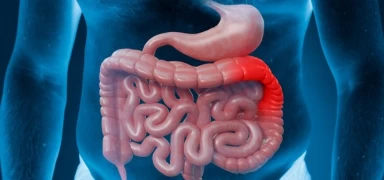
Ramadan and Constipation
- Ramadan and Constipation
- Beware of Constipation in Ramadan!
- When Sitting at the Iftar Table and Getting Up from the Iftar Table
- What Should Be Done to Prevent Constipation While Fasting?
- What are the things to be done after getting up from the iftar table to prevent constipation?
Beware of Constipation in Ramadan!
One of the biggest problems of those who fast during Ramadan is constipation. While fasting, the habitual diet changes. Decreased number of meals and consumption of different foods causes constipation.
Consumption of red meat, ramadan pita, rice pilaf, pastries and sweets increases at traditional iftar tables during Ramadan. In addition, the consumption of vegetables and fruits decreases.
When Sitting at the Iftar Table and Getting Up from the Iftar Table
What Should Be Done to Prevent Constipation While Fasting?
In case of constipation, we can list the points to be considered while sitting at the iftar table as follows:
- * Prefer fibrous foods: It is always beneficial to consume fibrous foods. It is very beneficial to consume whole wheat bread and its derivatives, dried legumes, green leafy vegetables in iftar and sahur. In addition, consuming bulgur, hulled rice and whole wheat bread can eliminate the risk of constipation.
- * Prefer olive oil: It is beneficial to add olive oil to salads or to drink it alone.
- * Avoid refined foods: Refined foods; Consume all foods made from white flour, such as pita, bagels, breadcrumbs, cakes, and pastry as little as you can.
- * Stay away from delicatessen products: It is beneficial not to consume delicatessen products such as salami, sausage, ham and pastrami at Ramadan tables as much as possible.
- * Do not neglect fresh fruits: Grapes, plums, melons, watermelons and apricots are good for constipation. You can also drink apricot, plum or grape compote with their grains. Eating without peeling the skin of edible fruits is good for constipation as it will increase the pulp.
- * Dried fruits are also beneficial: Dried fruits, which have rich fiber content, retain water while passing through the intestines with their high water holding capacity, thus they are good for constipation. Especially prunes, dried apricots and dried dates can be preferred against constipation.
- * Keep yoghurt and dairy products on your table: Consume yoghurt with main meals. You can also consume yogurt, ayran or tzatziki. It would be even healthier to prefer probiotic effective yogurts or prebiotic effective milks.
- * Water consumption is very important: The first thing you should do to prevent constipation while fasting is to consume plenty of fluids. In particular, you should not neglect to consume water. Even if there is no feeling of thirst, 2 to 3 liters of fluid should be taken. Taking 2 glasses of warm water or warm water with honey on an empty stomach is a positive behavior for bowel movements.
- * Avoid caffeinated drinks: Drink plenty of fluids at iftar. However, opt for these drinks to be caffeine-free.
- * A handful of nuts will work: It is useful to consume nuts such as pumpkin seeds, almonds, pistachios, hazelnuts, walnuts and cashews without going overboard. Salt-free ones should be preferred. However, despite the high fiber content of nuts, the high calorie value should also be considered.
What are the things to be done after getting up from the iftar table to prevent constipation?
In case of constipation, we can list the points to be considered after getting up from the iftar table as follows:
- * Change your toilet habits: Don't push too hard when you have your big toilet and stay on the toilet for a certain time. Especially prefer to use a Turkish style toilet. If for some reason you cannot squat and you need to use a toilet, put a 25 - 30 cm high material under your feet and try to create a squatting position.
- * Do not delay your sports and physical activity: Continue your daily physical activity as much as possible during Ramadan. If you can't do sports, at least try to walk for 10 to 15 minutes twice a day, morning and evening.
- * Drink fluids between iftar and sahur: Drinking plenty of fluids in the period between iftar and sahur is good for constipation. But prefer these liquids to be non-caffeinated beverages. Herbal teas, especially those containing mint, senna, fennel, ginger, are good for constipation. Besides these, fruit juices such as apple juice, pear juice and prune juice are also good alternatives.
I wish you a healthy and blessed month of Ramadan...
Make an appointment with Spc. Dr. Ömer Faruk Yolcu who wrote this article or learn more about this article.
Page content is for informational purposes only. Please consult your doctor for diagnosis and treatment.
Share This Health Guide





